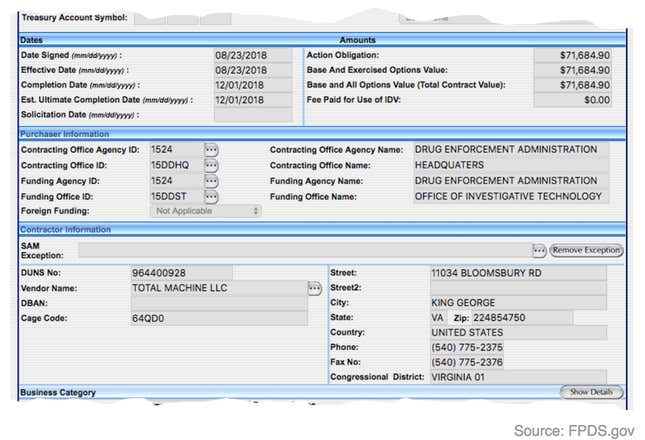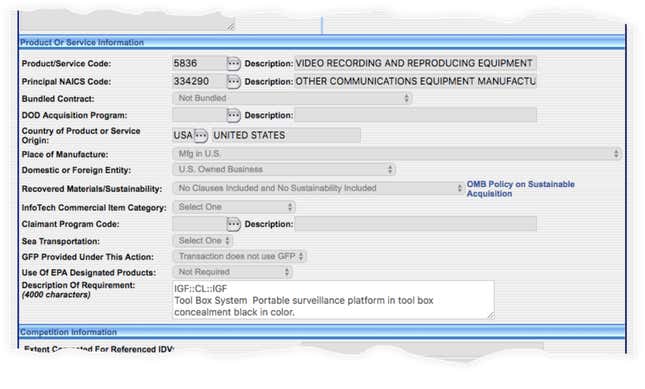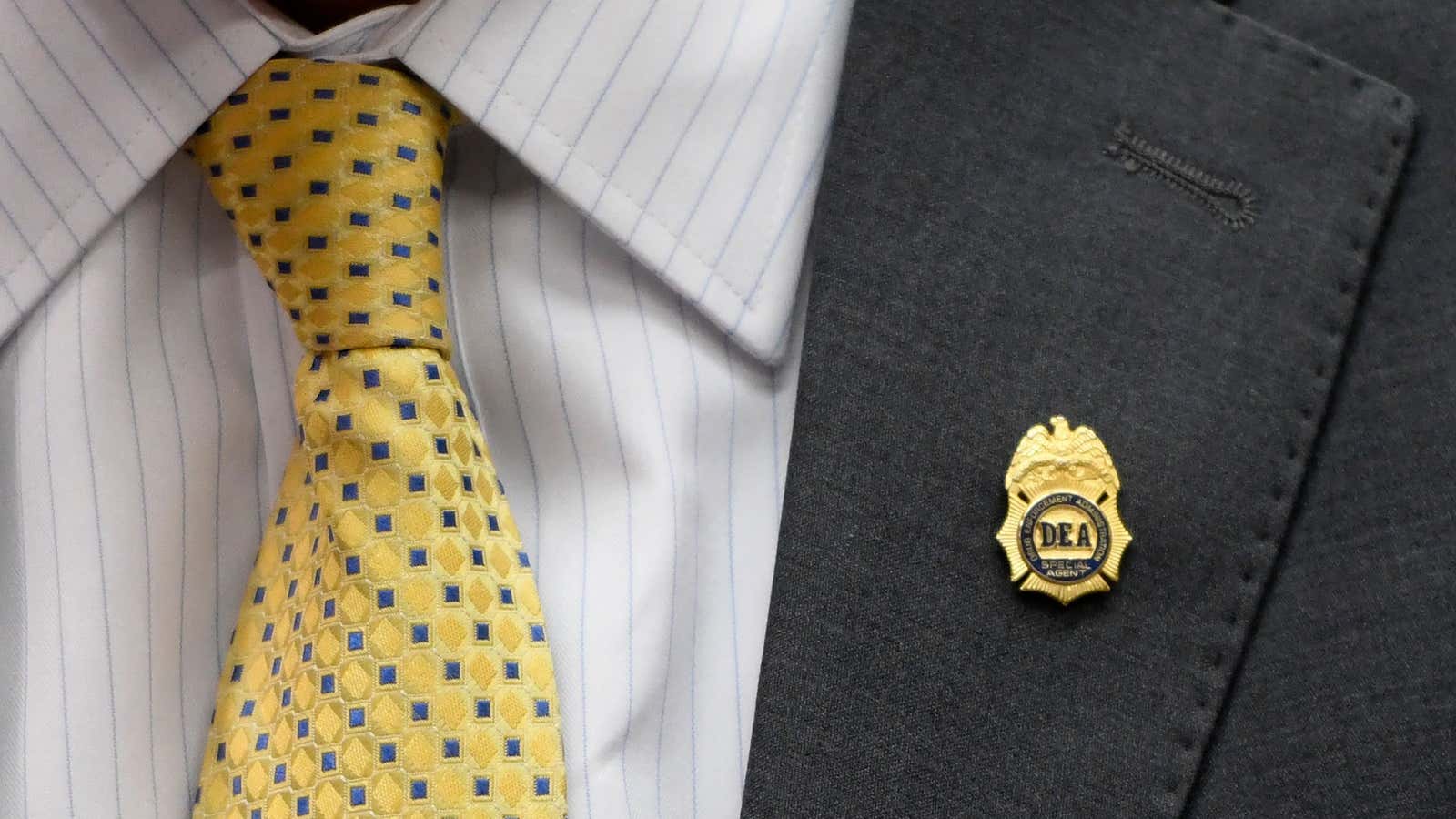As part of its ongoing remit to search out and stop illegal drug traffickers, the US Drug Enforcement Administration (DEA) has placed hidden cameras in everything from streetlights to traffic barrels to vacuum cleaners to road signs. Next up, the agency will be using an unspecified number of specially fitted toolboxes to conduct surveillance.
According to government contracting data, the DEA’s Office of Investigative Technology, which is located in Lorton, Virginia, has allocated $71,685 to Total Machine LLC of King George, Virginia for a contract running through Feb. 28. The work is described in federal filings as: “Tool Box System Portable surveillance platform in tool box concealment black in color.”


Total Machine did not respond to a request for further details. The company’s website says Total Machine “specializes in precision workmanship for prototype and production CNC [computer numeric control] machine work,” and offers “custom fabrication for sheet metal, aluminum and stainless steel applications.”
“Whether you are military, FBI, defense contractor or an engineering firm, at Total Machine, LLC, our goal is to provide you with courteous, expedient, professional service of the highest caliber,” it says.
Total Machine has also done work for the FBI in recent years, as well as military customers, per government spending data. In 2017, the company received a $433,000 contract to supply “rail kits” for the US Navy.
The covert concealments business can be quite lucrative. Special Services Group LLC, the company hired to hide video cameras inside Shop Vacs for the DEA, was paid $42,595 for the job. A firm called Adaptive Digital Systems signed a contract with the DEA in in December for $126,000 to provide “Concealments,” with no further information provided. And the DEA has paid a Houston, Texas company called Cowboy Streetlight Concealments LLC roughly $22,000 since June 2018 for “video recording and reproducing equipment.” Immigration and Customs Enforcement (ICE) paid about $28,000 to Cowboy Streetlight Concealments over the same period of time.
Presumably, the DEA will be employing its latest toolbox cameras in active drug investigations. The agency is also the primary node in the large-scale, national license-plate reader program, under which strategically placed devices—including those hidden in digital speed-display signs—identify and record the location of every passing vehicle for use by law enforcement.
Law professor Andrew Ferguson, a former public defender and author of 2017’s The Rise of Big Data Policing: Surveillance, Race, and the Future of Law Enforcement, recently told Quartz the DEA, which has been accused of secret—and possibly illegal—bulk data collection, “finds itself at the intersection of new technology scandals because they maintain both domestic and international jurisdiction and thus can argue the need to use surveillance tools that would not be acceptable in purely local law enforcement.”
“For example, most other domestic law enforcement agencies couldn’t claim any right to know information from secret NSA wiretaps…but because the DEA can claim that they are tracking international drug traffickers and thus need to know information obtained outside the states, they can use invasive techniques domestically,” Ferguson said. “In addition, the DEA has largely worked under the radar, as our national approach to large-scale drug prosecutions has not changed from administration to administration. The DEA has been funded, and with federal funds comes playing around with new surveillance technologies.”




